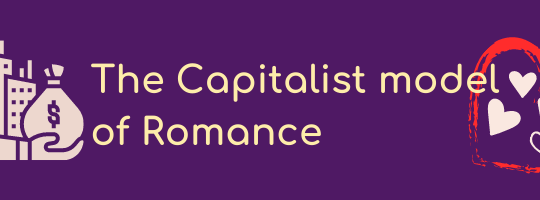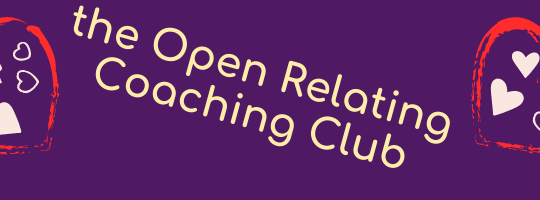A red flag means the alert that goes off, when you notice someone is behaving in a way that raises questions about how they might behave in a relationship with you, or saying things that raise suspicion of later toxic behaviour. Most red flags are common to all relationship types and dynamics, be it monogamy or multigamy. Noticing one red flag does not necessarily mean that the relationship is doomed. Only that heightened awareness is needed.
Examples of some universal relationship red flags include:
- Talking all the time about their ex-partner in an idealised fashion, indication that they are not over them.
- Saying only mean things about their ex partners, noticing a pattern of being attracted to toxic situations.
- ‘Love bombing’ – being extremely attentive and romantic in an over-the-top manner very early on in the relationship.
- ‘Negging’ and avoidant behaviour – playing games to create an anxious reaction, or to test your resolve to date them.
In non-traditional relationships along the multigamy spectrum (ethical and consensual non-monogamy), there may be other behaviours and attitudes that can represent signs that you need to consider as red flags. Here I list a few of them. They are also available as an Instagram guide.
Red flag means pay attention and stay alert. Perhaps there is nothing to worry about if you see a single red flag. But if more come up, they need to be taken seriously. Someone with an insecure connection style may ignore red flags in a new relationship. It’s happened to me a few times until I realised it, and worked on being more securely connected.
Not showing you that they can be fully trusted
They tell you that they are in an open relationship/non-monogamous but hide any verifiable information about their partner. You never get invited to their house, they avoid being seen in public places with you, they don’t share their social media profiles.
It is true that some couples have a don’t ask, don’t tell (DADT) agreement, which means their partner does not want to know details of dates and activities with others. However if you feel any suspicion and want to verify that they are not cheating, there are ways to do that.
Imagine a scenario where you meet someone who tells you they are non monogamous, are married, and have a ‘don’t ask don’t tell’ policy. You cannot go to their house, they won’t introduce you to any of their friends, you don’t know where they work. To me it’s a red flag to feel that the trust must come purely from what they tell me. Yes, it would be great if we can simply trust the word of everyone we meet and want to connect with romantically. I want to believe most people are honorable and trustworthy. Sadly this isn’t the world we live in. Not all cases are outright deception. Sometimes the person only shares details that benefit them and omits those that don’t. If you meet a person that openly offers information that you can verify if you wish, it would be much easier to build trust. You don’t need to verify it. Just knowing that you can is already building the trust.
If you want people to trust you, show that your actions mirror your words and make it easy for them to verify that what you claim about yourself is true.
I have started non monogamy very recently and I am so confused by the number of men who are very secret to the point of making me insecure (some even tell opposite things.. these ones are obvious).
I once met someone from a dating app who used an alias and told me she lives with her partner. She was private about her work life. I believed that her partner is fine with everything but it was helpful for me to see that she called him when she came to my place, when she asked if she can give my address to him as a safety precaution, and more when I eventually got to meet him in person.
Love bombing
You are showered with love, affection, gifts and dedicated time. This is something that is a universal red flag, but more so if the intention is to have multiple relationships. Is this kind of behaviour sustainable if you or them had other partners? Presenting an idealised and possibly fantastic version of themselves at the start is likely to lead to the feeling of being let-down later on as the relationship matures. It is really important to notice the part that I have to play in encouraging and approving of such behaviour. It may be soothing to my ego, or help my anxieties and fears of not being loved.
Couple’s privilege
There is no issue in principle with dating someone who is already in a primary relationship. Hierarchical polyamory exists and works for many people. There is inherent privilege in any situation where you start dating someone who has had a long-term partner, even if they are not married or living together. The red flag of couple’s privilege is raised when your partner’s other partner (your metamour) yields outsized power of your relationship.
When you meet someone who is in an existing primary relationship, asking about their agreements and boundaries is crucial. Do they hold ‘veto’ power over the others’ connections? Do they act in jealous or manipulative ways in reaction to them dating others? Does your partner often changes plans last minute due to the needs and wants of their other partner?
You can read more about how couples can unpack and address their unconscious couples’ privilege in this article or watch my talk about how to open up a relationship ethically.
Not willing to make binding agreements
When someone is new to polyamory or multigamy, it can be understandable that they are not aware of the need for clear agreements and are not yet cognisant of their own boundaries. When we leave things open and vague, there is higher potential for disappointment and hurt. Inexperience is a valid excuse for missing out on some elements and details of an agreement. However, refusing to discuss the details, intentionally being opaque or retroactively changing agreements are causes for serious concern.
Poly-saturation
When someone ‘collects partners’ because they are free to do so, leaving little time and energy to give to individual people, this is called over-saturation. There is a tendency when first discovering non-monogamy to go a little overboard with dating and it is understandable. Showing maturity and responsibility means knowing your time and energy limitations and appreciating the needs that each of your partners has.
When someone boasts that they have lots of partners, or ‘complains’ that they are seeing many people and are tired/stressed out, it can be a sign that:
- They don’t have healthy boundaries, and put others’ needs before their own
- They have some avoidant attachment issues and practice multigamy as a way of not fully committing to their partners.
Secrecy and Privacy
Watch out for too much secrecy and anti-social behaviour. People in poly communities are generally good at looking out for one another, and pushing out those that behave unethically. Someone who insists on total privacy, avoids making public appearances at social events and has no other friends on the poly scene, would be a red flag.
It is possible that they are shy, introverted and socially awkward. It is also a possibility that they are avoiding people that they have alienated in the past. This is something that is worth exploring further to be sure.








